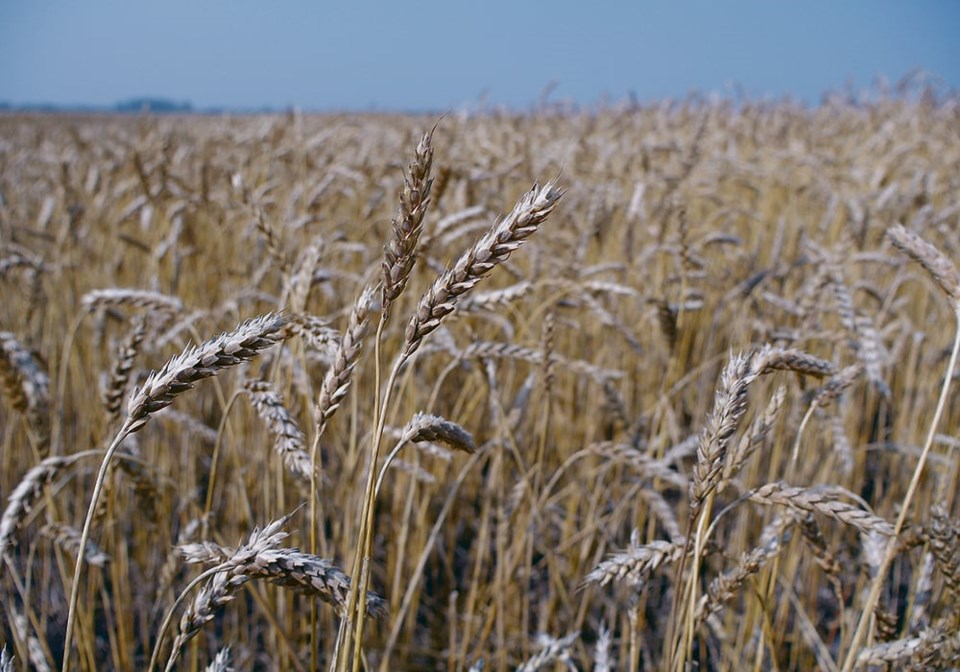WESTERN PRODUCER — Recent crop reports show good numbers for the Prairies as harvest reaches full swing.
Some Manitoba producers saw rain last week with regional precipitation hitting 18 to 33 millimetres.
Progress has been slow for northwest and central areas with heavy rainfall and humidity causing concerns.
Andrew Hector, agronomy extension specialist for cereal crops with the Manitoba Crop Alliance, said that hasn’t impacted wheat yields and quality as much as people feared.
“There were some days that were kind of foggy and misty, and I know there was some concern that this might impact quality, but reports so far from what’s been harvested is that quality has been fair to good.”
Crop reports noted some variations in adequate moisture for Saskatchewan cropland in an almost third-third-third split between adequate, short and very short. Grazing land has been harder hit with half of the province’s hay and pasture land rating short for moisture content.
Alberta regions are seeing a similar breakdown with 31 percent rated poor, 29 percent rated fair, 29 percent rated good and 11 percent rated excellent to excessive.
Similar to moisture issues on the Prairies, all three provinces are seeing similar percentages of commodities harvested early in the season.
Manitoba producers were sitting at 18 percent harvest completion as of last week, a drop of five percent compared to the five-year average of 23 percent.
Alberta and Saskatchewan are both ahead of their five-year averages.
Alberta producers are five percent over the five-year average of 12.6 percent and a six percent increase over last week with more than 17 percent of their major crops off of fields.
Saskatchewan producers have 33 percent of their total crop harvested, 10 percent over the five-year average of 23 percent and 12 percent more than last week.
Harvest of winter wheat and fall rye in Manitoba has nearly reached completion at 96 and 98 percent, respectively. Some regions are finished those two crops.
Depending on the amount of regional rainfall, Hector said wheat yields have varied from 35 to 80 bu. per acre in the central areas with an average around 60 bu. per acre. Field peas in Manitoba are 85 percent harvested.
Saskatchewan producers were hitting the winter wheat and fall rye hard with 89 and 97 percent off the field as of last week. Lentils and peas were at 80 percent.
Southwest farmers have reached the halfway point of their harvest with more than 60 percent of the crop harvested. Additional moisture in the northwestern regions has slowed progress with only eight percent of harvest complete.
Alberta producers had harvested nearly 74 percent of dry peas last week. Spring wheat was more than 19 percent harvested. Regional variation is quite steep between the south and Peace regions of the province.
Significant rainfall has slowed progress in the Fairview, Falher, Grande Prairie and Valleyview areas, according to the recent Alberta crop report.
Looking to the weeks ahead, there is still a lot of harvest left as some crops wait to mature.
Morgan Cott, agronomy extension specialist for specialty crops with the Manitoba Crop Alliance, said they were worried about flax quality earlier in the season but farmers will be in fields in the next couple weeks as flax matures. Stands are looking good at 75 to 100 percent in quality, said Cott.
“I don’t know what yields will be,” she said, “but generally, I’m happy with it. A little weedy but not really getting too damaged by insects, either, it seems.”
The dry conditions in Manitoba were benefiting sunflower crops by keeping diseases at bay, said Cott, but now with the excess moisture, they are starting to see sclerotinia.
Cott isn’t yet sure how that will affect crop quality. However, fields are looking good with bigger heads compared to last year.
Information for this article is taken from weekly crop reports put out by provincial governments. This week’s information is based on reports as of Aug. 28 and Aug. 29.
You can no longer count on social media to deliver important news to you. Keep your news a touch away by bookmarking SASKTODAY.ca's homepage at this link.
Subscribe to SASKTODAY.ca newsletter to get our daily news to your inbox.




